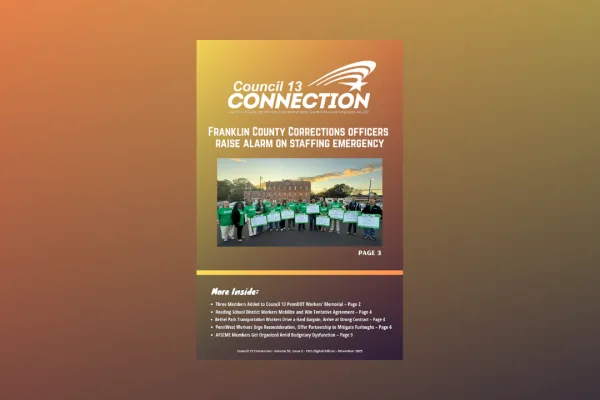
We Make Pennsylvania Happen!
Master Agreement
Master Agreement 2023-2027
Master Memorandum
Master Memorandum 2023-27
Join Today!
Sign up for MemberLink
Featured News
Warren County Public Safety Professionals Ratify Three-Year Contract
Warren County Public Safety Professionals Ratify Three-Year Contract
NEW Council 13 Connection available now!
NEW Council 13 Connection available now!
BlitzBurgh: Council 13 Members Get Organized in the Steel City
BlitzBurgh: Council 13 Members Get Organized in the Steel City
Public employees ready for continued action following late PA budget passage
Public employees ready for continued action following late PA budget passage
Upcoming Events
Secretary-Treasurer Training – Wilkes-Barre
9:00AM - 3:00PM
AFSCME Council 13 Wilkes-Barre Field Office, 300 Laird St, Suite A-1, Wilkes Barre, PA 18702
AFSCME International will be hosting a Secretary-Treasurer training for all AFSCME local unions in the area on Saturday, January 24.



